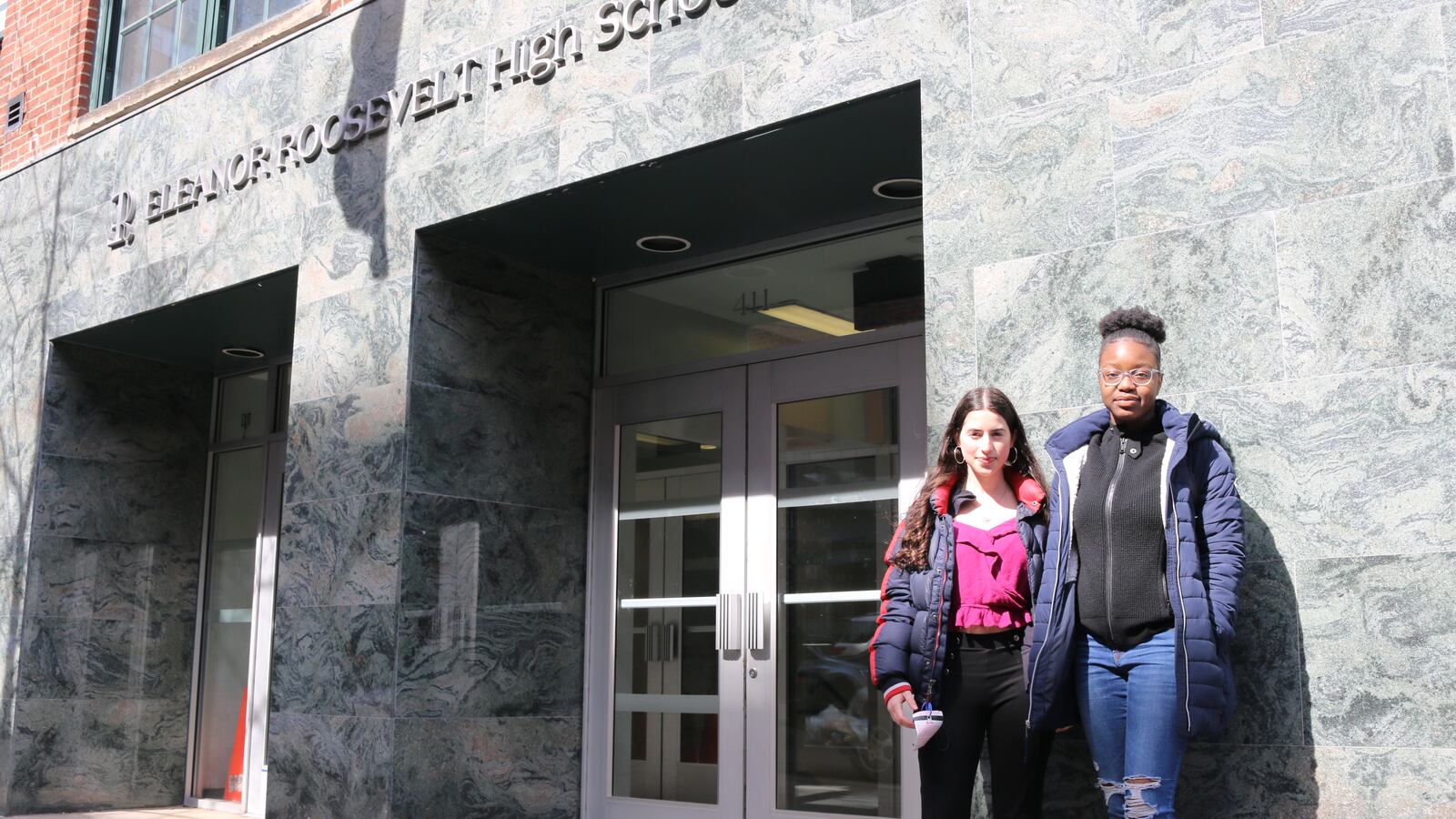Under the diversity recommendations released Monday, one set of New York City schools would not make swift changes to how they select students: high schools.
The recommendations call for eliminating gifted programs as they currently stand in elementary and middle schools and largely doing away with screened middle school admissions. But the recommendations stop short of calling for the city to immediately do away with selective high schools — even though academic segregation is steep across the city because of them.
The group’s decision not to eliminate academic screening in high schools caused some tension within the advisory group, including the resignation of a student representative who also belonged to Teens Take Charge, a group that has been lobbying for aggressive efforts to integrate schools.
“How can you look at elementary and middle schools and come to the conclusion, that with no uncertainty, that academic screening is a bad idea, that we shouldn’t do it, that we’ll stop doing it,” said Taylor McGraw, Teens Take Charge’s adult advisor and director of The Bell, a nonprofit focused on amplifying student voices. “But when you get to high school, that logic doesn’t apply all of a sudden?”
The proposals are not binding, and require Mayor Bill de Blasio to act to turn them into city policy.
If adopted, the high school recommendations that are included could still lead to significant changes. The report urges the city to require selective schools “that have an opportunity to serve a more racially representative student population” to change their admissions rules.
It also recommends eliminating some screens that schools currently use, including geographic zones that have allowed students in District 2, one of the city’s most affluent, to get first crack at many desirable high schools.
But the timeline recommended for broader high school changes is longer than the timeline the group urged for other kinds of schools. The report suggests that the city keep studying possibilities for academic integration in high schools and not to create any new screened schools — something that has not been a city priority for years.
Most significantly, the recommendations would leave intact, at least for the short term, the basic idea that high school admissions should allow for students to be sorted by their academic performance. That idea is easier to justify than screening students at age 4 for gifted programs, because middle school test scores and grades do reflect students’ actual school performance.
But the effect of the city’s many screened schools is that a small proportion of high schools enroll almost all students who passed the state’s eighth-grade exams, leaving the vast majority of schools educating students who are almost all already behind.
The changes recommended in the new report could allow those inequities to persist.
Take District 2’s Eleanor Roosevelt High School, where last year all students who were accepted lived within the district or attended middle school there. Removing the geographic priority could bring in students from other boroughs, but because of the school’s academic requirements, McGraw said, “they’re not going to look a lot different from the kids who go there now — they’re just going to have a different address.”
A student representative on the advisory group stepped down Friday over the high school issue, after seeing a draft of the final report. Coco Rhum quit because “the process did not feel like it was transparent or democratic,” she said in a statement. “It felt like being on the group was not an effective way to produce change.”
Rhum had presented Teens Take Charge’s policy recommendations for high schools to the advisory group, such as creating academic thresholds so that a high school could not admit, for example, less than 25% of students who passed their seventh-grade exams.
“Coco spoke about it with them multiple times, and from what we saw, we thought they were on board,” said Sokhnadiarra Ndiaye, another student leader at Teens Take Charge who attended one of the group’s meetings with Rhum. But the report released this week did not incorporate the recommendations, though it did encourage the city Department of Education to weigh them as well.
“When it comes to the high school version of the report, what we had seen was it was not as aggressive that we’d like it to be — as DOE needs to be,” Ndiaye said, who added that the group supports the changes recommended for gifted and talented programs and middle school admissions.
The report does suggest that more ambitious changes would benefit the goal of a fully desegregated school system. The report lists “redesign the high school admissions process to ensure all high schools are reflective of citywide racial and socioeconomic demographics” as a 3- to 5-year goal, without elaborating on what that might look like.
Instead of making aggressive changes to high school admissions, the group seems to be attempting to eliminate “feeder middle schools” so more students will have a level playing field when they’re seeking spots at competitive high schools, said David Bloomfield, professor of educational leadership, law, and policy at the CUNY Graduate Center and Brooklyn College.
“I think it’s a compromise with political reality,” Bloomfield said. “I think in terms of college preparation and competitiveness, parents are seeking a route to selective college admissions, and so there’s a greater pressure from parents to be able to claim outstanding college preparation.”

